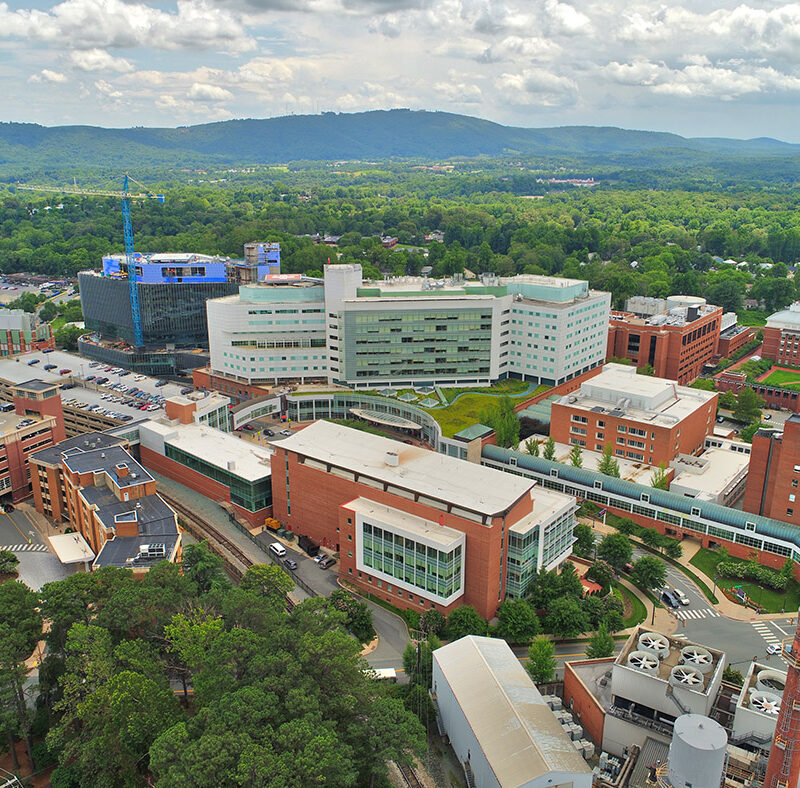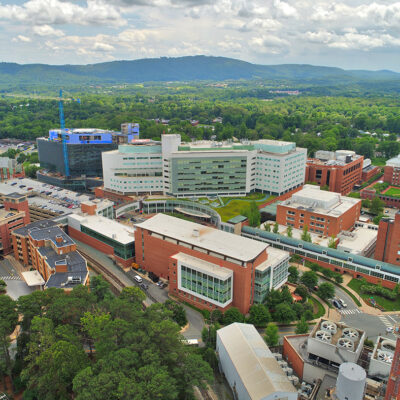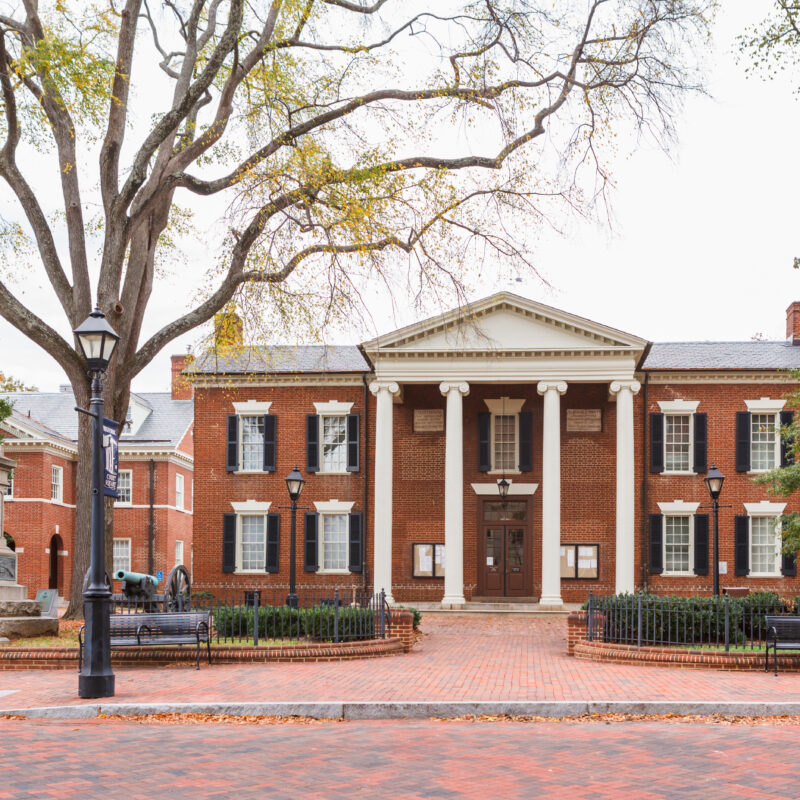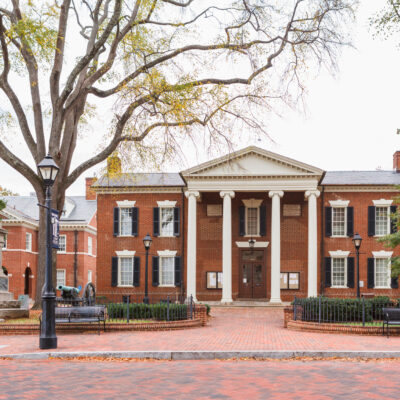Go east on the 250 Bypass, cross the Rivanna River, and you’re in what’s known as Pantops, a tangle of retail including the aging Food Lion shopping center, several car dealerships, a newer shopping center anchored by Giant, and what will be the new Martha Jefferson Hospital. The development at Pantops follows the conventions one would expect from any urban outskirts: big- and small-box retail, seas of parking, plenty of traffic lights, uninviting pedestrian sidewalks, no bike lanes and few people not in cars.
That’s the Pantops of today. But sitting in the nearly empty auditorium of a converted high school, six older white men review plans for the Pantops of tomorrow.
 County planning commissioners hope that the parking seas and big-box retail of today’s Pantops will give way to a more pedestrian-oriented community with more accessible greenspace |
One of three meetings on the “Pantops Mas-ter Plan,” the November 21 County Planning Commission work session focused on transportation and green space for the future’s version.
“I’m wondering why putting that language in there is a good idea,” said Commissioner Bill Edgerton
“We want to clarify that every green area we envision will not necessarily be County-owned and -maintained,” responded County staffer Rebecca Ragsdale.
Energy lagged at the meeting, despite its significance: The Pan-tops plan will influence the de-cisions of future planning com-missions and boards of super-
visors, who will use it to judge future developers’ proposals. County staffers went through computer slides, highlighted portions of Pantops maps, hov-ered a hand-like cursor over a park, a road, a business that currently exists only in the minds of the planners.
Though the auditorium could seat hundreds, by the end of the work session, three people remained, only one of whose presence was not mandated by her job. Perhaps tired of their own voices, the commission solicited a comment from her, Laura Hoffman, a white haired woman who carried a New Yorker for entertainment.
Drawing attention to her neighborhood, close to I-64, she told them, “I don’t think the community is into more access,” and pointed out poor wording about the sequence of a road improvement. Staffer David Benish agreed the wording should be changed. The session adjourned.





